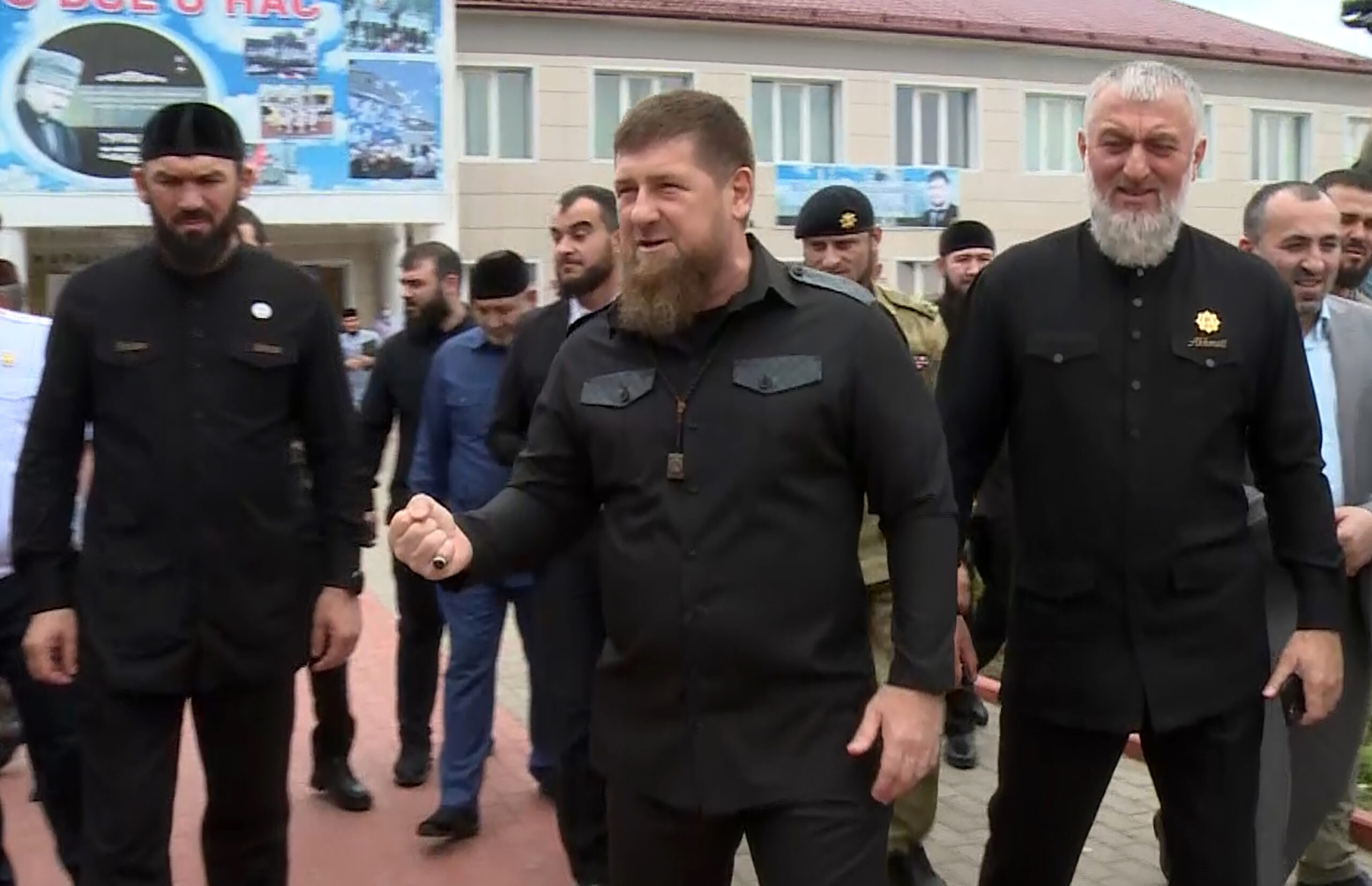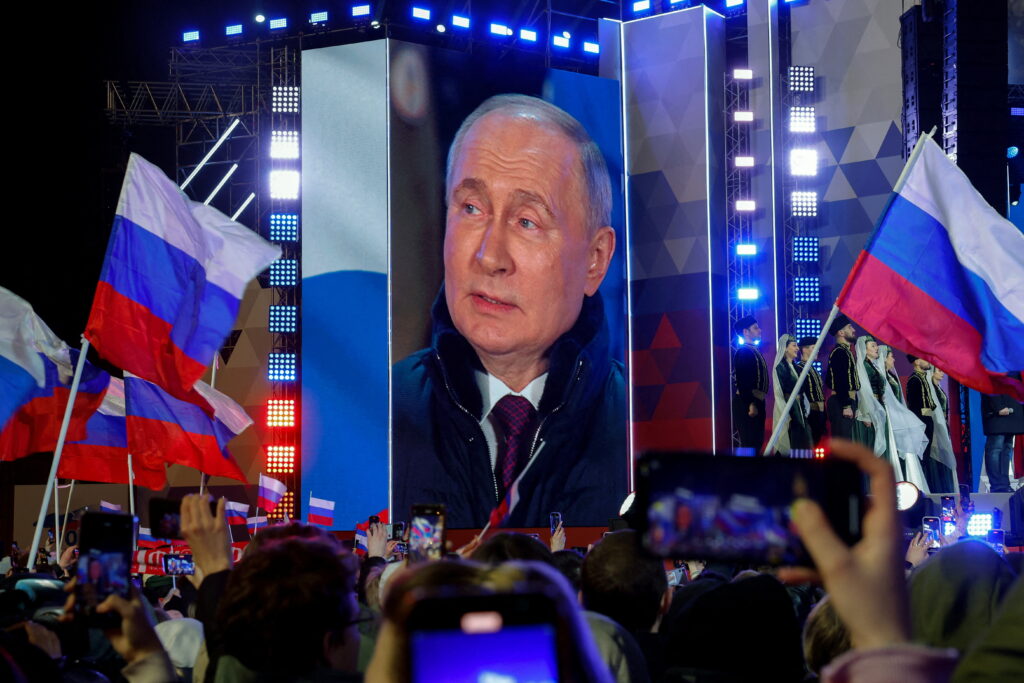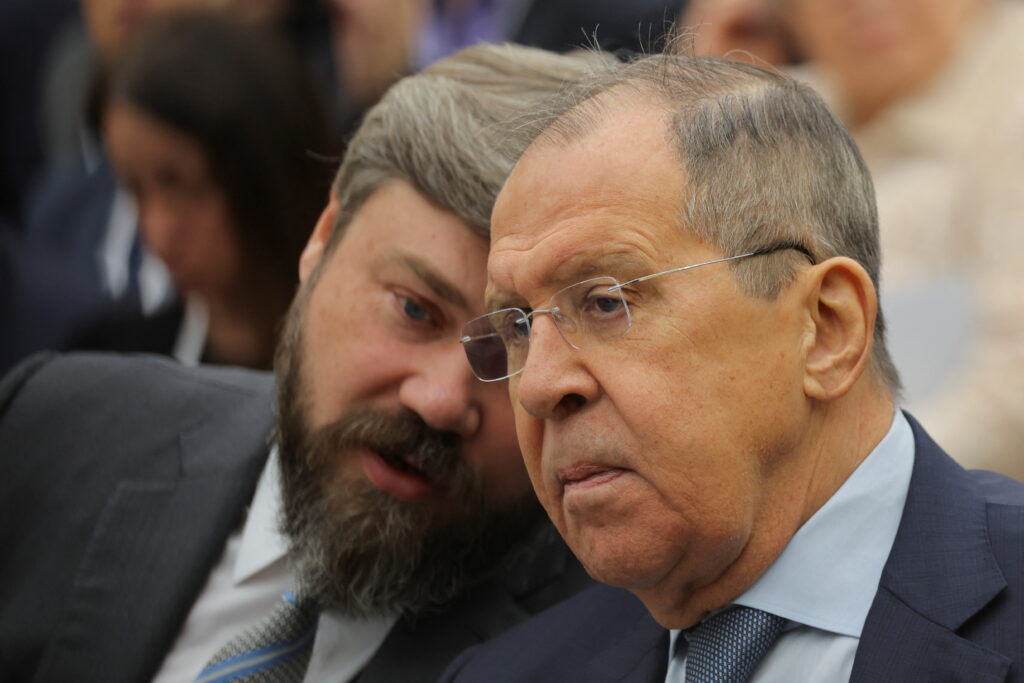Chechnya’s prominent commitment to Russia’s invasion of Ukraine has offered fresh insights into the financial versatility of its strongman Ramzan Kayrov and the true operational capabilities of his militant followers, the kadyrovtsy. As the war drags on, it is also bringing the intricacies of Chechnya’s internal governance further into the open. Internal hierarchies centre round a troika of three main families there, and so far these clans have seized the occasion to shore up their influence while handing down power to a new generation of family members.
The two defining characteristics of the Chechen government are nepotism and zemlyachestvo, as indicated by the BBC in 2018. This means that a significant number of officials in Grozny — even larger now than when the BBC tallied it — are either from the Kadyrov, Delimkhanov, and Daudov families, or come from the same village as Ramzan. The Delimkhanovs are themselves related to the Kadyrovs, and the Daudovs are members of the same tukkhum, the largest grouping of the traditional Chechen social structure. While there are other individuals who have influence in the Chechen government structure (e.g., Abuzaid Vismuradov or Muslim Khuchiev), the troika of these families is unmatched.
Sustaining a hierarchy
At the top of the governance pyramid, other than Ramzan himself, sits Chechnya’s Speaker of Parliament, Magomed «Lord» Daudov, alongside Adam Delimkhanov, Ramzan’s cousin and Duma representative. Despite the importance of these official roles, it is their informal duties that predominate. Broadly speaking, Daudov is in charge of organizing support, while Delimkhanov solves problems. This roughly extends to their family members as well.
In the latest Ukraine invasion, the Daudovs’ tasks, though less prominent than the Delimkhanovs, have facilitated the payoffs thus far from Kadyrov’s gamble. Magomed «secured» support—as much as Chechen legislators need to be persuaded to support Kadyrov—for the invasion in parliament and has performed his role as Chechnya’s top enforcer, overseeing rallies and deployments. Umar, an advisor to Kadyrov, is primarily a social media propagandist; he is extremely active on Telegram since his Instagram account has now been shut down. The Chechen propaganda machine is the most important aspect of the republic’s participation in the invasion, as it hypes the kadyrovtsy to Ramzan’s domestic audience of one (Putin). Turko Daudov’s official duties are his main ones here, as he serves as Kadyrov’s representative to the Muslim world. Since Kadyrov is the Kremlin’s envoy to the Middle East, this makes Turko an important liaison to maintain the Gulf States’ neutrality during the war.
The Delimkhanovs’ roles have been higher profile, serving on the frontlines in Ukraine. MP Adam deployed in mid-March to Mariupol, where he has been tasked with capturing the city. His brothers, Sharip and Alibek, were earlier overseeing the Kyiv assault. Sharip leads the Chechen branch of Rosgvardia, while Alibek serves as the deputy commander of its North Caucasus force. That the Delimkhanovs were given military objectives, which are logically the most important tasks in a war, can be attributed to their long history commanding the kadyrovtsy and their closer familial relation to Kadyrov. Additionally, Kadyrov has greater confidence in Adam to complete high-value tasks; historically, he has been entrusted with organizing assassinations and extortion schemes.
The other, more minor factions have also continued to play their expected parts. Vismuradov has remained more in the background, appearing at rallies, deployments, etc. Khuchiev has kept the bureaucratic machine operating, confronting the changing economic conditions. The various families connected to the security services (e.g., the Taimaskhanovs and the Chalaevs) have served their functions, either fighting in Ukraine or demonstrating their units’ readiness to deploy.
Gradually changing the guard
The generational shift within the Kadyrov regime has been ongoing for some time, but it was mainly restricted to Ramzan’s more distant relatives until a couple of years ago. Only recently have his children, and those of his closest advisors, become old enough to enter government, upon which they are rapidly promoted. The earlier integration of younger relatives was not always successful.
Islam Kadyrov’s fall from grace was drawn out and public. It ultimately stemmed from his ambition and lack of accountability. The next relative to reach Islam’s standing, Khas-Magomed Kadyrov, almost followed in his footsteps. Khas-Magomed quickly ascended from a role as assistant to the mayor of Grozny to himself becoming the mayor, via several rapid intermediate promotions. He also expressed desire to run for the Duma, but here his ambition was checked. He can now be found in the background of Ramzan’s propaganda videos, i.e., close enough to be personally satisfied, but far from influential. The era of such power gambles is likely over, as the new, more loyal cadre begins to move in.
Kadyrov’s children have taken substantial roles during this conflict. His eldest sons have taken center stage, quite literally. They have appeared at rallies, standing in prominent positions behind their father. Adam, only fourteen years old, declared his readiness to deploy to Ukraine. He also acted as his father’s bodyguard during their excursion to the border zone at the end of March. Even two of his youngest sons participated in a recent children’s propaganda clip. These performances are important because they show how Ramzan is beginning to build his sons’ images in the republic. This is a preliminary phase in establishing one of them as his eventual successor. His eldest son, Akhmat, will turn eighteen at the end of 2023. He will enter government, possibly a security agency like his older cousins, around that time.
Kadyrov’s three eldest daughters have participated in their official capacities. His third daughter, Khutmat, became the «Deputy Head of the Secretariat of the Head of the Chechen Republic» just days before the invasion. Her only war-related tasks have been to support the work of her sisters. Aishat, as the Minister for Culture, has organized charity events for families of kadyrovtsy in Ukraine, written songs about the war, and supported her sisters’ work. Despite being the eldest and serving in the most senior government role, her work is second to that of Khadizhat. The Head of Grozny’s Department of Preschool Education, operating beyond her purview, is responsible for the tahajjud («night prayer») outside the «Heart of Chechnya» mosque. This nightly assembly, praying for victory in Ukraine, reportedly draws thousands of worshippers. It, accordingly, accentuates the declarations by Chechen political and religious leadership that the Ukraine invasion is a holy war. This makes Khadizhat’s contribution to the war effort the most significant.
There is also a quite literal changing of the guard, as Ramzan’s generation of kadyrovtsy leadership is moved, through promotion or otherwise, out of the fighting ranks. Alibek and Sharip, formerly commanders of Sever Battalion and the «Oil Regiment,» respectively, are now senior members of Rosgvardia. Vismuradov still commands SOBR «Akhmat», yet his role in the invasion of Ukraine has been limited mostly to overseeing deployments with Magomed Daudov. He did not even appear in the «ready to deploy» propaganda clip of his own unit. Meanwhile, his recently promoted deputy, Saidi Lorsankaev, is now leading members of both SOBR «Akhmat» and Yug Battalion in eastern Ukraine.
Setting up for the future
Both of the trends outlined above will continue. Ramzan will keep his most trusted senior advisors as close as possible, while integrating a newer, more loyal cadre of his own children. Adam Delimkhanov, who Kadyrov once named as a worthy successor, will keep working to ensure Ramzan’s vision for the Chechen nation is fulfilled, while the children increasingly jockey for status in the bureaucratic ranks.
In the security sphere, the promotion of Kadyrov’s veteran commanders up the chain of command both aids and hinders his future. These advancements strengthen his control within regional security structures, needed after the «krapovyi beret» Rosgvardia scandal several months ago. However, they are also indicative of experienced fighters aging-out from the kadyrovtsy ranks. This partially informs Ramzan’s military support for the invasion, as it would give his younger forces a chance to gain combat experience—it is still questionable how much, if any, kinetic engagement the kadyrovtsy have seen in Ukraine.
These dynamics among the Chechen administration’s personnel highlight the ongoing transition as Kadyrov moves to a new period of his rule.










